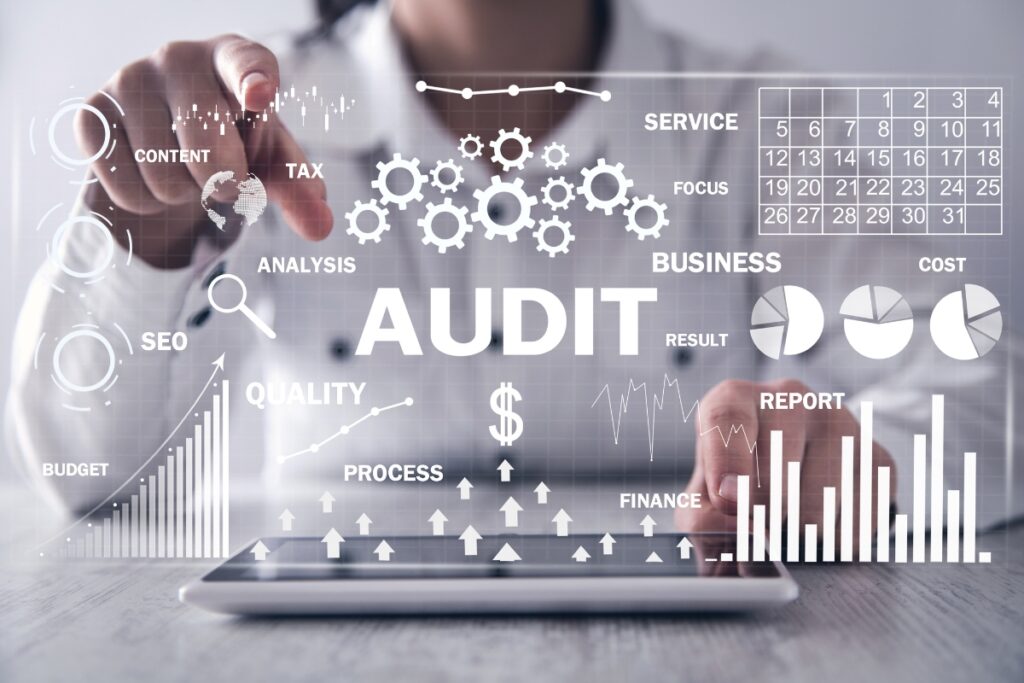This article about auditing in bodies corporate was written by Katya Prideaux, Mahoneys.
This article is to give guidance on the requirements and processes placed on bodies corporate in relation to the auditing of their financial records.
What is an audit?
- All bodies corporate must keep proper accounting records and prepare a statement of accounts for each financial year showing the income and spending, or receipts and payments of the body corporate for the financial year.
- An audit is an independent assessment and review of the accounting records and financial statements of the body corporate to identify:
- whether they provide an true and fair representation of the body corporate’s financial positon; and
- any material inconsistencies or errors.
- It is important to note that the auditor does not provide an opinion on the appropriateness of the budgeting of the body corporate. It is simply a review to ensure the records kept are an accurate account of the financial activities undertaken.
Legislative requirement to consider an audit
- At every annual general meeting (AGM), a body corporate must consider a motion to decide whether or not it undertakes an audit of its financial records by ordinary resolution (Audit Motion) unless it resolves by special resolution in the negative not to do so. This is the only motion in which the body corporate can decide not to do something. If owners are wanting an audit of the accounts to be completed, they will need to vote against the special resolution motion.
- However, small schemes and specified two-lot schemes are subject to different rules. Relevantly it is not compulsory for small schemes or specified two-lot schemes to audit their accounts (they may choose to, but they are not obliged to consider such motion at each annual general meeting).
- The obligation to have owners vote to undertake an audit is a statutory requirement. Accordingly, bodies corporate are required to follow the strict protocols set out in the legislation in relation to the auditing process.
- As a statutory motion, it is the responsibility of the committee to include the Audit Motion when they are preparing the AGM agenda.
Why should the body corporate undertake an audit?
- Legislation recognises that carrying out an audit is the default position.
- A body corporate may wish to undertake an audit to ensure the reliability and accuracy of its accounts. This is particularly so if there are concerns as to certain spending and costs noted within the financial records, or that owners have been misled in relation to certain expenses.
Process
- If the motion not to audit the accounts fails and the body corporate is subsequently required to have its statement of accounts audited, the body corporate must pass an ordinary resolution agreeing to the auditor to be appointed.
- The motion for agreeing to the auditor to be appointed:
- must be included in the agenda for the general meeting at which the motion is to be considered; and
- must include the name of the auditor proposed to be appointed; and
- would usually follow the Audit Motion, but is not voted on (and ruled out of order) if the Audit Motion achieves a special resolution.
- Even if a body corporate resolves not to have its statement of accounts for a particular financial year audited, the body corporate may still resolve to have its accounting records for a particular period, or for a particular project, audited and appoint an auditor for the purpose. This allows for retrospective application and auditing to be undertaken.
Who can undertake an audit?
- An auditor must:
- be a registered company auditor or have the relevant qualifications in accountancy approved under the regulation module applying to the community titles scheme; and
- have at least a total of 2 years of auditing experience.
- The following persons cannot be appointed to audit the accounting records or the statement of accounts of a body corporate:
- a member of the committee;
- a body corporate manager; or
- an associate of a member of the committee or a body corporate manager.
- An associate means someone else with whom the person is associated, including through or a series of relationships that can be traced through another person. This includes the obvious relationships such as partners and family members, but also includes employer and employee, corporate relationships and fiduciary relationships.
Undertaking the audit
- An auditor may, as part of the scope of their review, make inquiries with all relevant parties involved in the administrative and accounting roles of the relevant body corporate to obtain supporting evidence and records to form their professional opinion.
- On completion of the review, the auditor must give a certificate:
- stating whether the statement of accounts gives a true and fair view of the body corporate’s financial affairs; and
- if the statement of accounts does not give a true and fair view of the body corporate’s financial affairs—identifying the deficiencies in the statement.
- A copy of the auditor’s certificate must accompany the notice of the next annual general meeting held after the certificate is given.
Katya Prideaux Mahoneys E: kprideaux@mahoneys.com.au P: 07 3007 3753
This post appears in Strata News #727.
Have a question or something to add to the article? Leave a comment below.
Read next:This article has been republished with permission from the author and first appeared on the Mahoneys website.
Visit our Strata Committee Concerns OR Strata Legislation QLD
Looking for strata information concerning your state? For state-specific strata information, take a look here.
After a free PDF of this article? Log into your existing LookUpStrata Account to download the printable file. Not a member? Simple – join for free on our Registration page.
